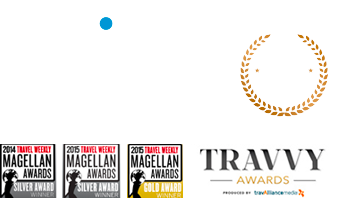
In recent years, blockchain has gone from being a novelty linked to the world of cryptocurrencies to a strategic resource in very different sectors.
In an era in which digital life is increasingly interconnected, the demand for effective systems to protect data and online identities has become a priority for millions of users. Cyber attacks, identity theft and privacy violations are just some of the threats that push individuals and companies to seek advanced solutions. In this context, blockchain technology is establishing itself as one of the most promising innovations in cybersecurity, offering a decentralized, transparent and tamper-resistant structure.
Blockchain is transforming everything from finance to online entertainment, offering transparency, immutability, and decentralized control. Its applications in the casino industry are especially promising—providing verifiable fairness, crypto transactions, and enhanced data security. As the technology becomes more accessible, players are seeking platforms that integrate blockchain into the user experience. On noveonlinecasino.com, readers can learn more about which casinos are adopting blockchain features and how it improves trust and innovation in gaming. This synergy of tech and entertainment is reshaping the very foundation of online play.
In recent years, blockchain has gone from being a novelty linked to the world of cryptocurrencies to a strategic resource in very different sectors. Its strength lies in the ability to create distributed networks, in which each transaction is verified and tracked, without anyone being able to modify or delete it arbitrarily. A feature that is attracting the attention of anyone who wants greater protection for their digital data.
Blockchain explained in simple terms
Blockchain – literally “chain of blocks” – is a shared and immutable digital register. Each block contains a series of information and, once verified and added to the chain, can no longer be modified without the approval of the network that hosts it. In practice, it is a system that eliminates the need for a central authority to validate transactions or guarantee the authenticity of the data: the nodes of the network themselves control each other.
The integrity of the system is based on complex cryptographic algorithms that protect each operation. The result is a transparent, traceable and highly secure infrastructure, ideal for managing transactions, digital certificates, health data and much more. Every user can view the content of the chain, but no one can alter the blocks once they have been recorded. This makes blockchain extremely reliable in all those contexts where trust between the parties is essential.
Blockchain technology is revolutionizing digital industries through decentralization, transparency, and unmatched data security. In online gaming, its applications are especially promising—eliminating manipulation and enabling provably fair play. But beyond system integrity, blockchain also supports engaging bonus features. A great example is https://tribuna.com/en/casino/blogs/2024-11-23-the-best-online-casinos-with-free-spins-on-regist/, which lists casinos offering free spins upon registration—many of which integrate blockchain for fair rewards and payment processing. These innovations show how transparency and fun can coexist, reshaping the future of both technology and entertainment.
Fields of application
Among the sectors that benefit most from it are the financial sector - where it is used to perform secure and immediate transfers - logistics, healthcare and even public administration, which can exploit the transparency of the system to certify official documents and operations.
The world of online gaming is also importing blockchain onto its portals to protect users from possible surprises. A technology that allows various data entered daily by players to remain protected and encrypted from the hands of those who would like to take possession of them. From sensitive data to alphanumeric combinations of codes to obtain free spins or bonuses on the first deposit, up to payment methods. For this reason, it is a tool highly appreciated by users and operators who, by using this technology, guarantee the highest level of security.
Digital art, through NFTs (Non-Fungible Tokens), has found in blockchain a way to guarantee the uniqueness and ownership of works. In the healthcare sector, for example, blockchain can be used to safely store medical records and reports, which can only be consulted by those who actually have the right to do so. In the food supply chain, it allows you to trace the path of a product "from the field to the table", increasing consumer confidence in the quality and origin of what they buy.
Advantages and disadvantages of blockchain
The strengths of blockchain lie in its decentralized structure, cryptographic security and the traceability of each transaction. Thanks to these characteristics, the data entered is practically inviolable and easily verifiable at any time. Furthermore, the absence of a central body reduces intermediation costs and speeds up processes. This tool can be useful not only in online businesses, but also for retail with companies that will have to invest more and more in cybersecurity, since they too can be victims of cyber breaches. Blockchain continues to reshape the digital landscape, bringing transparency and immutability to industries like finance, healthcare, and gaming. In the online casino world, blockchain-backed systems offer verifiable fairness, instant crypto payments, and decentralized platforms. Interestingly, some platforms are even aligning their services with fan-based communities. https://www.steelernation.com/2025/03/18/steelers-most-deposit-online-casino explores how branded or themed casinos attract loyal player bases—demonstrating how blockchain and brand engagement can intersect. Whether it's tech or trust, modern platforms are evolving far beyond traditional expectations.
However, there are some critical aspects. The main one is related to the high energy consumption of some public blockchains, such as those used for cryptocurrencies. Other critical issues concern scalability – that is, the ability to manage a large number of simultaneous operations – and technical complexity, which can represent an obstacle to adoption by the less expert public.

